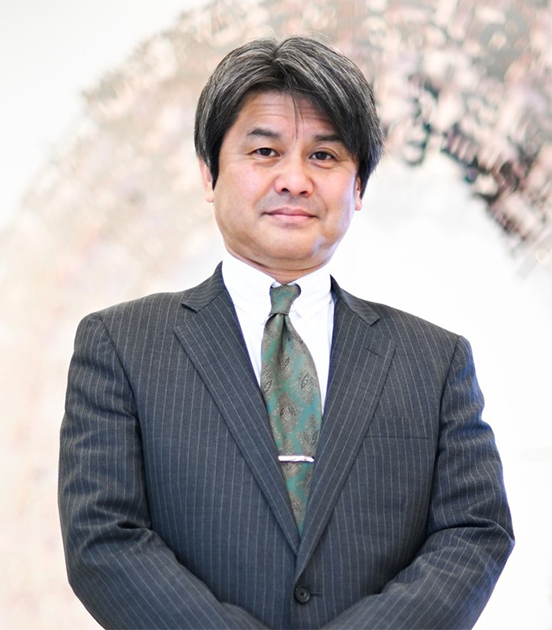About Doho University

Message from the President

President
Takumi Fukuda
Doho University is a small university with two faculties—the Faculty of Letters and the Faculty of Social Welfare—a Special Course (Buddhism Studies), and a Graduate School. The history of the university can be traced back to 1921, when the Shinshu College was established on the grounds of the Shinshu Otani-ha Nagoya Temple (East Branch), as a place to study Japanese Jodo Shinshu Buddhism (Shin Buddhism) founded by Shinran Shonin (1173-1263).
Shinran was a Buddhist who lived from the late Heian period to the Kamakura period(12th and 13th centuries). His teachings emphasize that salvation is not exclusive to the nobility but extends to all sentient beings, regardless of wealth or status, without discrimination. While Shinran paved the way in making Buddhism accessible to the people, he viewed those who shared the same passion and walked the same path as him, not as disciples but as fellow companions traveling together. We also express this concept in a way that is easy for people today to understand: “Living Together in Diversity.”
All institutions of higher education, such as universities, bear the mission of creating new societal leaders. However, the vision of future leaders envisioned by Dohyo University is not that of the kind of leader often seen today in the worlds of politics and media—one who attacks others, refutes arguments, and flaunts their own superiority. While recognizing that asserting dominance leads only to resentment and conflict, we believe that the type of people who should hold leadership positions from now on are those who immerse themselves among others, build diverse connections, and collaborate to move situations forward—rather than those who simply sit at the top, issuing commands. Doho University is a place of learning that cultivates the spirit of Living Together in Diversity and strives for salvation from a society filled with discrimination, poverty and strife.
The learning pursued in the Faculty of Letters, which questions what humans are and what human-created culture is, and the learning pursued in the Faculty of Social Welfare, which explores how to create better public spaces within this society, are fundamentally connected. Within that interconnectedness, there are various entry points for learning about humanity and society, including literature, history, language, philosophy, religion, welfare, medical care, public health, aid, administration, information, education, childcare, and psychology, and more. All of these research avenues are available on this campus. We hope that, in time, you will join us as part of this community of learners.
Shinran was a Buddhist who lived from the late Heian period to the Kamakura period(12th and 13th centuries). His teachings emphasize that salvation is not exclusive to the nobility but extends to all sentient beings, regardless of wealth or status, without discrimination. While Shinran paved the way in making Buddhism accessible to the people, he viewed those who shared the same passion and walked the same path as him, not as disciples but as fellow companions traveling together. We also express this concept in a way that is easy for people today to understand: “Living Together in Diversity.”
All institutions of higher education, such as universities, bear the mission of creating new societal leaders. However, the vision of future leaders envisioned by Dohyo University is not that of the kind of leader often seen today in the worlds of politics and media—one who attacks others, refutes arguments, and flaunts their own superiority. While recognizing that asserting dominance leads only to resentment and conflict, we believe that the type of people who should hold leadership positions from now on are those who immerse themselves among others, build diverse connections, and collaborate to move situations forward—rather than those who simply sit at the top, issuing commands. Doho University is a place of learning that cultivates the spirit of Living Together in Diversity and strives for salvation from a society filled with discrimination, poverty and strife.
The learning pursued in the Faculty of Letters, which questions what humans are and what human-created culture is, and the learning pursued in the Faculty of Social Welfare, which explores how to create better public spaces within this society, are fundamentally connected. Within that interconnectedness, there are various entry points for learning about humanity and society, including literature, history, language, philosophy, religion, welfare, medical care, public health, aid, administration, information, education, childcare, and psychology, and more. All of these research avenues are available on this campus. We hope that, in time, you will join us as part of this community of learners.
